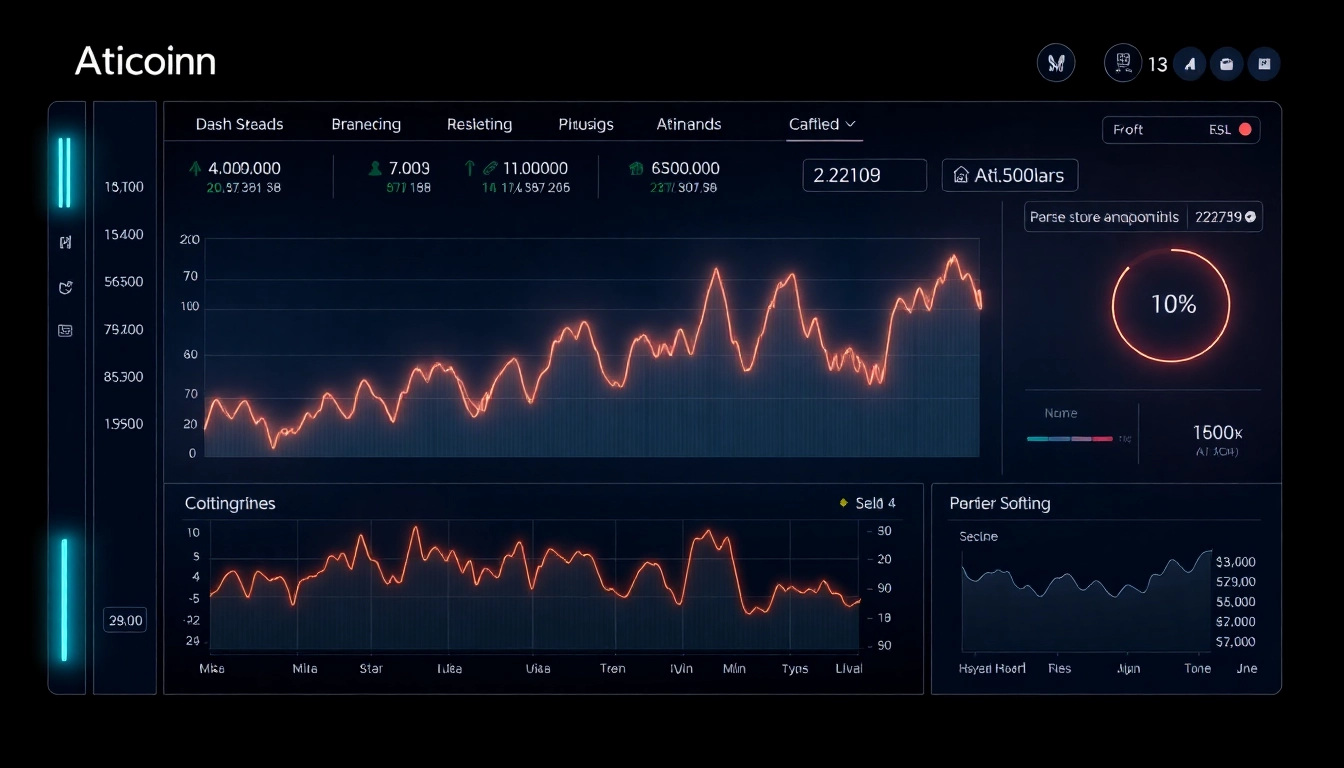
Understanding the Landscape of Jobs in MNC Companies
What Defines a Multinational Corporation?
Multinational corporations (MNCs) are large companies that operate in multiple countries beyond their country of origin. These organizations leverage international presence to access broader markets, diversify risks, optimize supply chains, and tap into global talent pools. An MNC typically has headquarters in one country (the home country) and maintains subsidiaries, branches, or affiliates in various other nations. Examples include industry giants like Unilever, Siemens, and Microsoft.
MNCs are characterized by their complex organizational structures, cross-border operations, and significant influence on global markets. They play pivotal roles in economic development, innovation, and employment generation. For job seekers, working in an MNC can mean exposure to diverse work environments, international collaboration, and career advancement opportunities on a global scale.
Current Trends in MNC Hiring Practices
The hiring landscape within MNCs continues to evolve rapidly, influenced by technological advancements, shifting global economies, and the rise of remote work. Key trends include:
- Digital Transformation & Remote Hiring: Companies now prioritize digital skills and are increasingly hiring remotely, enabling access to a wider talent pool.
- Focus on Soft Skills & Cultural Compatibility: As collaboration becomes more globalized, traits like adaptability, intercultural communication, and emotional intelligence are highly valued.
- Data-Driven Recruitment: Use of AI, machine learning, and analytics to filter candidates, predict candidate success, and streamline hiring processes.
- Emphasis on Diversity & Inclusion: An expanding effort to foster diverse workplaces leads to targeted hiring initiatives for underrepresented groups.
- Skill-Based Hiring & Continuous Learning: MNCs seek candidates with specialized technical skills, certifications, and a demonstrated commitment to ongoing professional development.
For example, technology firms like Microsoft and Siemens are now emphasizing cloud computing, cybersecurity, and AI expertise during recruitment, recognizing these as critical skills for future growth.
Popular Roles and Sectors in MNCs Today
The most sought-after roles in MNCs span various sectors, reflecting their diverse operations:
- Technology & IT: Software engineers, data scientists, cybersecurity specialists, technical support engineers, and IT project managers.
- Finance & Accounting: Accountants, financial analysts, auditors, and tax specialists.
- Marketing & Sales: Digital marketing managers, business development professionals, brand managers, and sales executives.
- Human Resources & Administration: Talent acquisition specialists, learning and development managers, and contracts administrators.
- Operations & Supply Chain: Logistics coordinators, supply chain analysts, and operations managers.
- Customer Service & Support: Customer support representatives, technical support engineers, and consumer relations specialists.
For example, AI-focused companies often recruit roles like Customer Success Engineers and Virtual Assistants, emphasizing expertise in emerging technologies and remote collaboration.
How to Effectively Apply for Jobs in MNC Companies
Building an Impactful Resume for MNC Applications
Crafting a compelling resume tailored to MNCs requires a focus on clarity, quantifiable achievements, and alignment with the company’s core values. Key tips include:
- Highlight Global Experience: Emphasize cross-cultural projects, international collaborations, or multilingual skills that demonstrate adaptability.
- Use Keywords: Incorporate relevant industry keywords and skills from the job description to pass ATS (Applicant Tracking System) filters.
- Showcase Certifications & Continuous Learning: Include relevant certifications like PMP, CPA, or technical certifications such as AWS or Cisco.
- Quantify Results: Use metrics to demonstrate success, e.g., “Increased customer satisfaction ratings by 20%.”
- Professional Formatting: Keep the layout clean, avoiding excessive graphics or complex formatting that may hinder ATS parsing.
An example of a well-structured resume: a dedicated section for key skills, followed by a professional summary highlighting international experience, then detailed work history focusing on results.
Leveraging Networking and Online Platforms
Building a strong professional network is crucial when seeking jobs in MNCs. Platforms like LinkedIn are invaluable for connecting with industry leaders, recruiters, and alumni. Effective strategies include:
- Optimizing Your LinkedIn Profile: Ensure your profile is complete, with a professional photo, detailed experience, and keywords aligned with your target roles.
- Joining Industry-specific Groups: Participate in discussions, share insights, and showcase your expertise.
- Engaging with Content: Comment on posts, publish articles, and demonstrate thought leadership to attract recruiter attention.
- Attending Virtual Career Fairs & Webinars: Many MNCs now host online events—participating can provide direct connections with hiring managers.
Additionally, making use of specialized job portals such as jobs in MNC companies can significantly increase visibility among employers actively seeking talent.
Preparing for MNC Interview Processes
The interview process in MNCs often involves multiple stages, including aptitude tests, behavioral assessments, technical interviews, and cultural fit evaluations. Preparation strategies include:
- Research the Company: Understand their values, recent news, products, and corporate culture.
- Practice Behavioral Questions: Use the STAR method (Situation, Task, Action, Result) to structure responses on teamwork, leadership, and problem-solving.
- Sharpen Technical Skills: Review relevant technical concepts, coding languages, or industry-specific tools.
- Mock Interviews: Conduct simulated interviews with peers or mentors to enhance confidence.
- Cultural Awareness & Soft Skills: Be prepared to demonstrate adaptability, communication, and cross-cultural collaboration skills.
Success in MNC interviews heavily depends on not only technical proficiency but also demonstrating cultural fit and global mindset.
Key Skills and Qualifications for Success in MNC Roles
Essential Technical and Soft Skills
To thrive in MNC environments, candidates need a blend of technical expertise and soft skills. Technical skills vary depending on the role but often include proficiency in:
- Programming languages (Python, Java, C++)
- Data analysis & visualization tools (Excel, Tableau, Power BI)
- Project management software (Asana, Jira, MS Project)
- Cybersecurity & network fundamentals
- CRM or ERP systems (SAP, Salesforce)
Soft skills are equally critical, with emphasis on:
- Effective communication across cultures
- Problem-solving and critical thinking
- Leadership and teamwork
- Adaptability and resilience
- Time management and self-motivation
For instance, a Customer Success Engineer should possess both technical prowess and the ability to communicate complex solutions clearly to diverse clients.
Certifications and Continuous Learning
Continuous professional development is essential to stay competitive. Relevant certifications enhance credibility and open doors to higher roles. Popular options include:
- Project Management Professional (PMP)
- Certified Professional in Supply Management (CPSM)
- Agile and Scrum certifications
- Cloud certifications (AWS, Azure, Google Cloud)
- Language certifications (TOEFL, DELE, DELF, depending on regional needs)
Engaging in online courses from platforms like Coursera, edX, or LinkedIn Learning can also help develop niche skills aligned with industry trends.
Language and Cultural Competency
Multilingual abilities greatly enhance employability in MNCs, especially for roles involving international clients or teams. Mandarin, Spanish, German, and French are highly valued languages in global business. Moreover, cultural competence involves understanding diverse communication styles, business etiquettes, and workplace expectations. Cultivating these skills fosters seamless collaboration and contributes to personal and organizational success.
For example, German-speaking Contracts Administrators or Business Development Specialists in South Africa are in high demand due to regional economic ties and growing global markets.
Maximizing Your Chances: Tips and Resources
Utilizing MNC-specific Job Portals
Many multinational corporations post job openings directly on their careers pages or through specialized job portals. Regularly checking platforms such as Naukri, LinkedIn, ZipRecruiter, and the company-specific sites like Unilever Careers or Siemens Jobs can give you an edge in securing interviews. Additionally, niche portals like jobs in MNC companies consolidate opportunities, making your job search more efficient.
Setting up alerts, subscribing to newsletters, and actively applying to new postings ensures that you stay ahead of the competition.
Attending Career Fairs and Industry Events
Although virtual events have gained prominence, attending industry-specific career fairs and webinars is highly effective for direct engagement with recruiters. Prepare your elevator pitch, carry digital or printed copies of your resume, and be proactive in networking. Participating in events hosted by chambers of commerce, industry associations, or university alumni networks can open doors to unpublished positions.
Engaging with company representatives provides valuable insights into organizational culture and upcoming roles.
Following Global Industry Trends and Company News
Staying informed about industry developments enables you to tailor your applications and demonstrate industry awareness during interviews. Follow company press releases, subscribe to industry newsletters, and engage with thought leaders on social media. This proactive approach indicates genuine interest and helps you align your skills with emerging needs.
For example, understanding how AI is transforming customer support can prepare you for roles in AI-driven companies.
Evaluating Job Offers from MNCs
Understanding Compensation and Benefits Packages
When considering job offers, analyze the entire compensation package, including base salary, bonuses, stock options, health insurance, retirement plans, and perks like remote work allowances or wellness programs. Conduct market research to ensure the offer aligns with industry standards and your experience level.
Use comparative data from sources like Glassdoor, Payscale, or industry reports to benchmark offers.
Assessing Company Culture and Growth Opportunities
Corporate culture impacts job satisfaction and long-term success. Evaluate aspects such as work-life balance, diversity policies, leadership style, and opportunities for advancement. Research employee reviews on platforms like Glassdoor or seek interviews with current employees to gain insights.
An organization that supports learning and internal mobility can significantly enhance your career trajectory in the long run.
Navigating Remote vs. On-site Positions
Remote work has become commonplace, offering flexibility and broader job options. However, it requires disciplined self-management and strong virtual communication skills. On-site roles might provide better networking opportunities and organizational immersion.
Consider your personal preferences, lifestyle, and career goals when choosing between remote and on-site roles. Ensure clarity on expectations, working hours, and support systems before accepting an offer.







